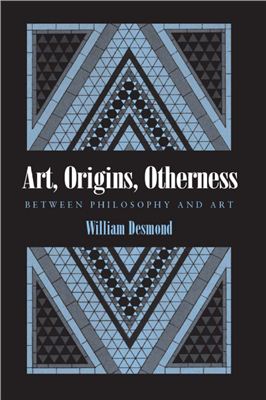State University of New York Press, 2003. - 336 pages.
Though our time is often said to be post-religious and post-metaphysical, many continue to seek some encounter with otheess and transcendence in art. This book deals diversely with the issues of art, origins, and otheess, both in themselves and in philosophical engagements with the works of Plato, Kant, Hegel, Schopenhauer, Nietzsche, and Heidegger. Addressing themes such as eros and mania, genius and sublime, transcendence and the saving power of art, William Desmond tries to make sense of the paradox that too much has been asked of art that now almost nothing is asked of it. He argues that there is more to be said philosophically of art, and claims that art has the power to open up mindfulness beyond objectifying knowledge, as well as beyond thinking that claims to be entirely self-determining.
Though our time is often said to be post-religious and post-metaphysical, many continue to seek some encounter with otheess and transcendence in art. This book deals diversely with the issues of art, origins, and otheess, both in themselves and in philosophical engagements with the works of Plato, Kant, Hegel, Schopenhauer, Nietzsche, and Heidegger. Addressing themes such as eros and mania, genius and sublime, transcendence and the saving power of art, William Desmond tries to make sense of the paradox that too much has been asked of art that now almost nothing is asked of it. He argues that there is more to be said philosophically of art, and claims that art has the power to open up mindfulness beyond objectifying knowledge, as well as beyond thinking that claims to be entirely self-determining.

